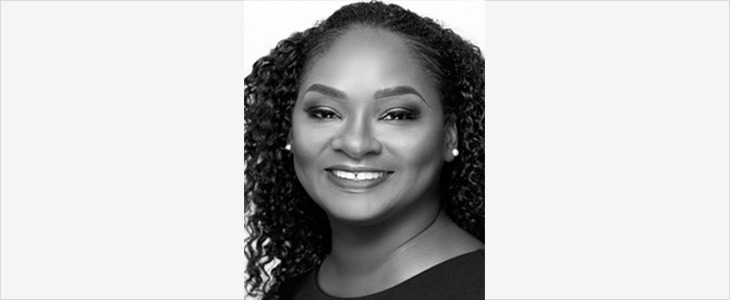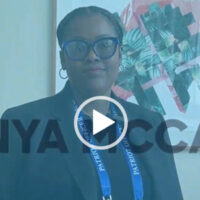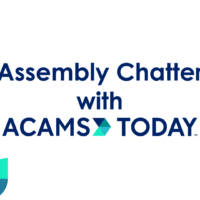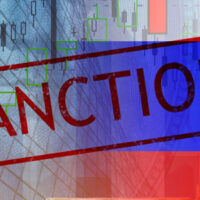
For International Women’s Day 2020, ACAMS Today had the pleasure of interviewing Candice Huggins, chief compliance officer at CIBC FirstCaribbean International Bank, about her career, her role as a woman in anti-money laundering (AML), and what she is doing to make an impact in this industry and her community.
Huggins’ experience spans over 20 years in legal, risk management and regulatory compliance within the financial services sector in areas such as banking, securities, trust and fund administration. She has worked in the private and public sectors in multiple jurisdictions including the Cayman Islands, the British Virgin Islands, Barbados, Trinidad and Tobago, and Canada.
Huggins has advised extensively on regional AML, fraud and risk issues through her work with international bodies, such as the International Monetary Fund (IMF), World Bank Group and the Organization of American States. She has served as a consultant for regional and international projects, such as the Caribbean Financial Action Task Force (CFATF) mutual evaluation and country assessment and preparation programs, and the International Monetary Fund/World Bank Group’s offshore pilot project on AML compliance in the Caribbean.
Huggins has litigated in the area of white-collar crime contributing to the jurisprudence of the region. In addition, she developed and implemented risk and compliance programs for a variety of financial institutions.
Since 2016, Huggins has been active dealing with correspondent banking issues facing regional jurisdictions. She has represented CIBC FirstCaribbean International Bank at multiple seminars facilitated by IMF and the World Bank Group from 2017 to 2018 in Barbados, Jamaica and most recently in the Bahamas. In addition, Huggins had significant input in the conversation around the loss and retention of correspondent banks in the region and participated in the dialogue hosted by the U.S. Department of State, U.S. correspondent banks, respondent regional banks, governments and statutory authorities in Jamaica and Antigua.
ACAMS Today: At the ACAMS 1st Annual International AML & Financial Crime Conference—Caribbean, you were part of an exciting panel discussion on how to approach politically exposed persons (PEPs) in compliance. How do women bring a unique perspective to this issue and other facets of the compliance role?
Candice Huggins: Although this may be a generalization, as a result of the historical evolution of the male and female career dynamics, men typically focus on high-level issues whereas women have for centuries been tasked with executing the details. Therefore, women often approach PEP and other higher-risk areas of compliance with a greater degree of meticulousness.
AT: With your many roles and responsibilities both professionally and personally, how do you find and maintain the right balance in your work and your personal life?
CH: For me, it is all about efficiency and time management when it comes to my day-to-day routine. As a mother, structure is important for standard tasks. However, over the years I have trained my mind to avoid panic when the balance is upset by crisis situations. It is important to remain calm and take on a strategic approach. My career often requires immediate decision making, which has benefited me tremendously in my personal life. Work-life balance is strongly promoted at CIBC FirstCaribbean International Bank.
AT: How have women in AML been pioneers in the industry? Where in the financial crime prevention industry would you like to see more female representation?
CH: Historically, female pioneers in the financial crime prevention industry were engaged in law enforcement, which was dominated by men. In recent times, there are increasing opportunities to pioneer in other areas within the industry where more women are employed. For example, in the Caribbean there are now more women recruited and trained in the AML evaluation field. This trend is making a significant impact and driving policy development.
I would like to see more female representation in every aspect, particularly in the areas where the female perspective is underrepresented, such as law enforcement and policy making.
AT: Who has been your biggest inspiration professionally?
CH: Dawne Spicer from the CFATF has been a great professional inspiration. She was one of the first women in the Caribbean region to qualify as an AML expert. I trained with her for the first five years of my career and with her leadership and guidance, I was able to meet significant milestones early on in my career. I became one of the first batch of trained mutual examiners, an AML expert and the representative of Trinidad and Tobago at the Organization of American States, CFATF and the United Nations’ Transnational Crime Forum. More importantly, Dawne trusted and empowered me even when I doubted my own ability. Her mentorship has shaped my approach in empowering young women to defy gender as well as age stereotypes to achieve their full potential.
AT: What is a common misconception about women in anti-financial crime?
CH: Women in this industry face the same gender stereotypes that are present in many other industries. We are perceived as more emotional, allowing our feelings to cloud our judgment. This perception is changing due to the number of women holding key anti-crime positions. Therefore, many prior misconceptions have been forced to evolve, to recognize women as equally determined and assertive leaders. We know that a high emotional quotient (EQ) is now being recognized as a key to successful leadership and women have been shown to exert great EQ. Women demonstrate a greater capacity to be emotionally intelligent and this can be a positive trait for our industry.
AT: What would you say is the highlight of your AML career?
CH: There have been many highlights over the 20 years of my career, among the notable moments is the opportunity to inspire and lead young women. I have been fortunate enough to have developed a multifaceted perspective of the industry in law enforcement, policy making, as well as commercial and regulatory standards within the public and the private sector.
AT: What will you be doing to celebrate International Women’s Day this year?
CH: My approach to this day no different than any other day as I believe that women in senior positions who can affect change should focus on empowering other women and improving their levels of confidence on a daily basis. Women are often more reserved about projecting their value and their contribution. Society tends to view self-confidence as a positive trait in men, but this same trait can be deemed self-serving in women. I promote teamwork above individual accomplishments, but I strongly encourage taking credit when it merits. This year, I will be focusing on celebrating the small yet important daily contributions of the women with whom I work, which can sometimes go unnoticed. I want 2020 to be a year of recognition and celebration.
AT: When you are not combating corruption and financial crime, what do you enjoy doing in your spare time?
CH:I love spending time with my 3-year-old son, Connor, at the beach and ensuring that I do not miss the memorable moments of his early years. I also enjoy travelling to new places to expand my view of the world. I love cooking. I find it quite therapeutic. Like my mother, I also love entertaining (whether it be random or planned) friends and family with food, drinks and laughter.
Interviewed by: Karla Monterrosa-Yancey, CAMS, editor-in-chief, ACAMS, Miami, FL, USA, kmonterrosa@acams.org










